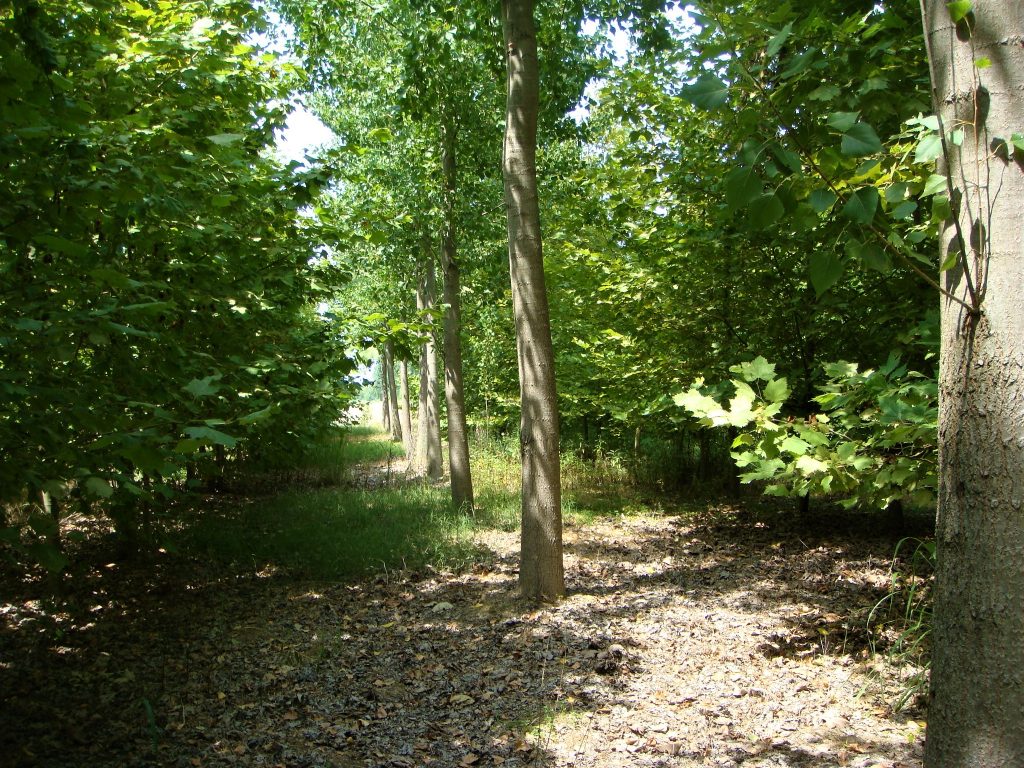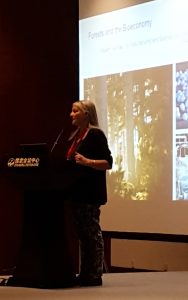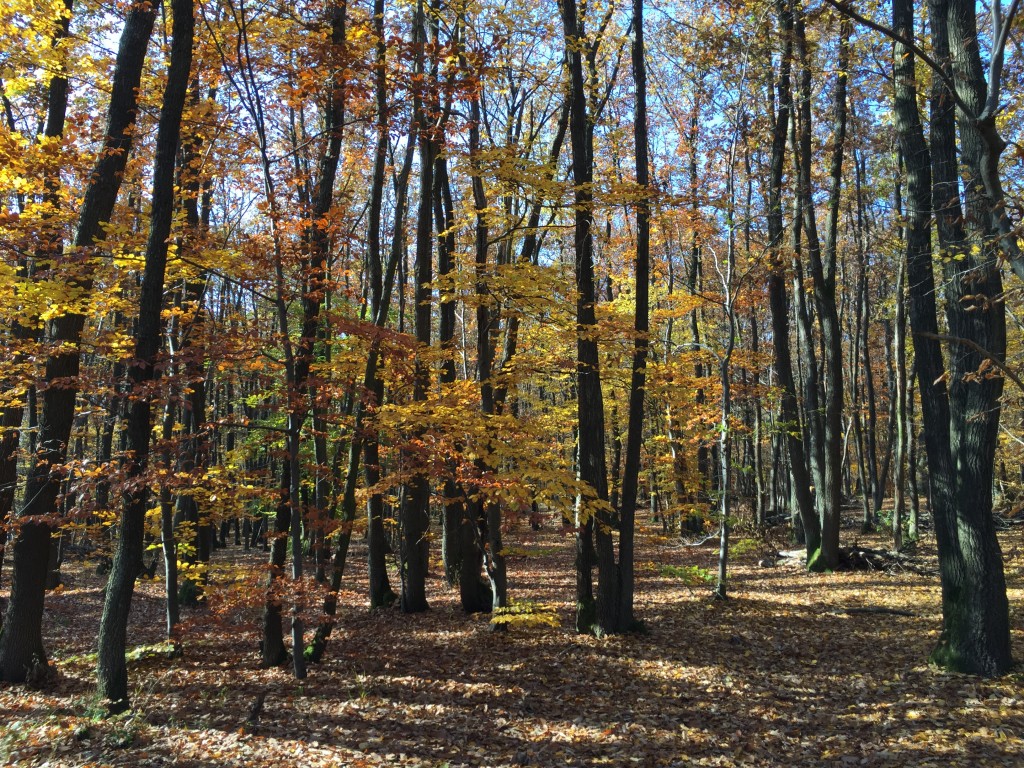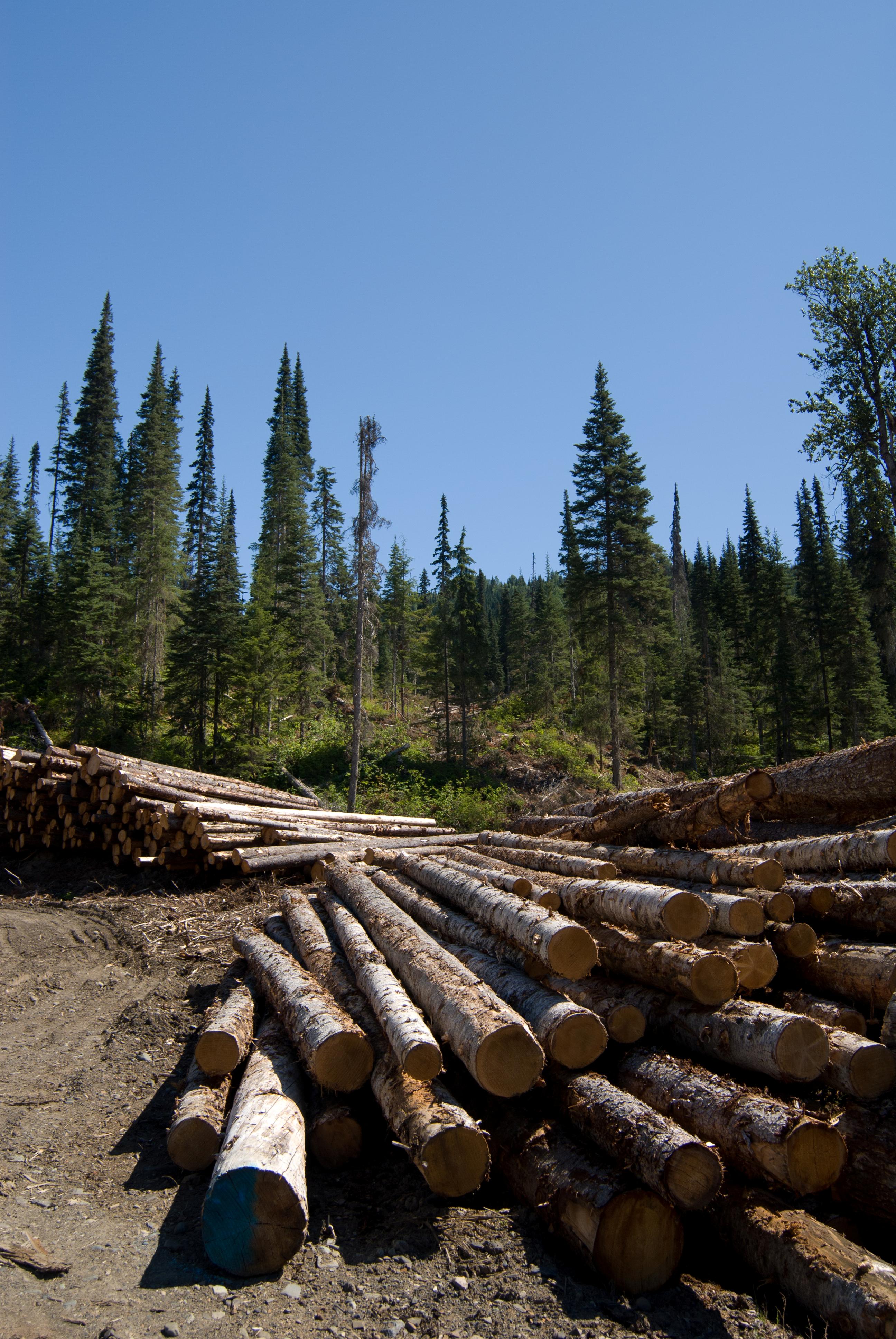IUFRO Spotlight #88 – Using a social science lens on the forest bioeconomy
IUFRO Spotlight #88 – Using a social science lens on the forest bioeconomy

In many countries, forests are important sources of renewable biomass and figure prominently in bioeconomy strategies.
Forests can be stretched beyond their traditional applications and used in textiles, chemicals, and cross-laminated timber, among other things, and can provide climate and ecological benefits, lead to rural employment opportunities and add to regional growth.
Read more…Spotlight #81 – Developing evidence-based cases for planted forests
Spotlight #81 – Developing evidence-based cases for planted forests

Plantation forests get a bad rap.
That’s the assessment of Christophe Orazio, who is coordinator of the IUFRO Task Force (TF) on Resilient Planted Forests and, after having led the Planted Forests Facility of the European Forest Institute (EFI-PFF) until its closure in 2019, is now director of the European Institute for Cultivated Forest (IEFC).

Plantation forests get a bad rap.
That’s the assessment of Christophe Orazio, who is coordinator of the IUFRO Task Force (TF) on Resilient Planted Forests and, after having led the Planted Forests Facility of the European Forest Institute (EFI-PFF) until its closure in 2019, is now director of the European Institute for Cultivated Forest (IEFC).
Spotlight #80 – Becoming visible – non-timber forest products and a sustainable economy
Spotlight #80 – Becoming visible – non-timber forest products and a sustainable economy

One positive and largely overlooked outcome of the current coronavirus could be a stronger bioeconomy.
“I think the pandemic is going to spur the bioeconomy,” said Dr. James Chamberlain of the United States Forest Service, Southern Research Station in Blacksburg, Virginia, and Coordinator of IUFRO’s Unlocking the Bioeconomy and Non-Timber Forest Products Task Force.
Read more…The Future of Forests and Forestry in Asia and the Pacific
A report from the partner event on the opening day of the 27th Session of the Asia-Pacific Forestry Commission by Dr Michael Kleine, IUFRO Deputy Executive Director
The 27th Session of the Asia-Pacific Forestry Commission, taking place at the Bandaranaike Memorial International Convention Centre, Colombo, Sri Lanka from 23-27 October 2017, started with a partner event on the future of forests to be assessed in the forthcoming 3rd Asia-Pacific Forest Outlook Study “The future of forests and forestry in Asia and the Pacific: The path to 2030 and beyond”. Read more…
Forest science is alive and well: 10 points from IUFRO 2017
NOTE: This text is reblogged from Boris Rantaša’s blog post at https://rantasa.me/2017/09/26/forest-science-is-alive-and-well-10-points-from-iufro-2017/
***********************************************************
September 26, 2017 – BORIS
From 17. to 22. September 2017 I took part in the IUFRO 125th Anniversary Congress in Freiburg, Germany. IUFRO stands for International Union of Forest Research Organization and is the oldest scientific union in the world. The congress presented the state of the art in forest research, development and practice.
I have tried to sum up what I learned at the congress in the 10 points below: Read more…
IUFRO Spotlight #57 – Transition in forest uses demands change in approaches

Wood chips being transported to a pulp mill. These chips represent the waste stream from a saw mill, but are becoming increasingly valuable as more and more uses for wood are developed. Photo by John Innes.
“The portfolio of goods and services from forests is now very different to that two decades ago; yet there is a disconnect between the institutional framework and these new forms of forest use, leading to efficiency, equity and legitimacy deficits,” said Dr. John Innes, Dean of the Faculty of Forestry at the University of British Columbia, Canada.
The changes – from forest planting and forest harvesting and operations, to forest use and forest products – occur at different levels. Today, forests produce a complex array of products from forest ecosystem services to timber and bio-products.
Market values are increasingly being attached to forest ecosystem services and this is changing the value systems associated with forestry. Read more…
Forests and the bioeconomy: challenges and opportunities

Elspeth MacRae delivering her keynote speech. Photo: Gerda Wolfrum, IUFRO Headquarters
Keynote speech by Elspeth MacRae, Scion, New Zealand
Read an interview with Dr. MacRae at: https://blog.iufro.org/2016/09/01/interview-with-dr-elspeth-macrae-scion-new-zealand/
Find biographic information at: http://www.iufro.org/events/congresses-regional/#c25751
The future holds tremendous challenges for the world with the increase in population probably being the largest one. As a consequence, we expect a need for a 70% increase in the amount of food available by 2050. The demographic changes and new lifestyles will put a growing pressure on the natural resources, exacerbate the effects of climate change, deplete soils and make water a scarce commodity, among other things. Read more…
Interview with Dr Elspeth MacRae, Scion, New Zealand
Keynote speaker at the IUFRO Regional Congress for Asia and Oceania – Forests for Sustainable Development: The Role of Research
Forests and the Bioeconomy: challenges and opportunities

Dr. Elspeth MacRae. Scion Photo
Innovative technologies for bio-energy, bio-materials and other products will be one of the major themes at the IUFRO Regional Congress for Asia and Oceania on 24-27 October 2016 in Beijing, China. Dr Elspeth MacRae leads wood and fibre processing activities, including biorefinery, biodiscovery and bioplastics at Scion, New Zealand. Her keynote speech will highlight state-of-the-art biotech research and the role of bioproducts. Read more…
Spotlight #34 – Investigating Potential and Risks in Biomass

Coppice woodlands once provided significant shares of biomass for thermal energy in the proximity to urban areas, while representing hotspots of biodiversity. Can we adopt traditional management practices to today’s needs and still ensure sustainable production? And how can we harmonize existing guidelines to achieve this goal? The image shows a Quercus-Carpinus dominated outgrown coppice forest that is situated within the city boundaries of Vienna, Austria. (Photo by Viktor Bruckman)
Renewable resources are critical to the sustainable future of our planet. That means biomass is being looked on, in many ways, as a potential game-changer.
It is seen as a mitigator of climate change, as a source of energy and as the source for a variety of bio-based products that range from wood to bio-plastics and composite materials.
Recognizing this, IUFRO’s newly constituted Sustainable Forest Biomass Network Task Force plans to explore the potentials and the risks of further development of biomass – specifically biomass from forests.
The Task Force is one of several organized to advance knowledge under five research themes in accordance with the IUFRO 2015-2019 Strategy. Read more…
A changing forest sector: Globalization triggers bio-economy and the search for new business opportunities
Scientists, practitioners and decision-makers from around the world meet in Vancouver, Canada from 27 to 30 August 2013 to discuss the implications of globalization on forests and their management.
PDF of Press Release for download
(Vancouver/Vienna, 27 August 2013) Globalization is changing forests and the forest sector. Increases in international trade and investments have altered the global business environment for forestry. The growing world population moving towards nine billion by 2050, economic growth, rising resources demand and increasing environmental concerns are other drivers fostering transformation in forestry and the management of forests. New players enter the global market, and the bio-economy –– the production of ‘green’ products from renewable resources –– is gaining weight. From 27 to 30 August 2013, more than 100 representatives from research, industry and government will discuss how global trends influence forest resources, and how new opportunities for forest entrepreneurs and a more resource efficient society can be harnessed. The Conference has been organized by the University of British Columbia (UBC), Faculty of Forestry, on behalf of the Task Force “Resources for the Future” of the International Union of Forest Research Organizations (IUFRO).

